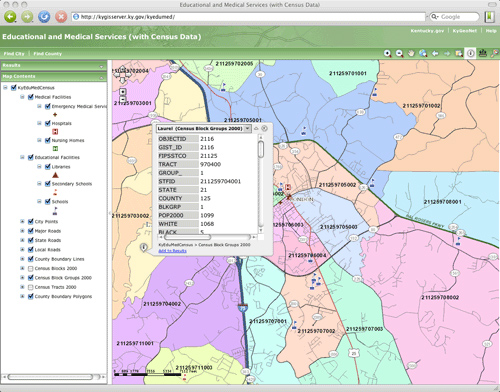NTIA has announced a separate NOFA from Rural Utilities Service for the second round of broadband funding, with a strong focus on Comprehensive Community Infrastructure in addition to the existing Public Computing Centers and Sustainable Broadband Adoption categories. The Infrastructure projects will focus on linking to community anchor institutions.
Applications for BTOP's Public Computer Centers (PCC) and Sustainable Broadband Adoption (SBA) programs are due at 5 p.m. EDT on March 15, 2010. NTIA expects a high volume of applications during this round of funding, and strongly recommends that applicants do not wait until the last minute to submit their applications.
Applicants for BTOP Comprehensive Community Infrastructure projects will have until 5 p.m. EDT, March 26, 2010 to submit their applications to NTIA.
Applicants for BIP Infrastructure projects will have until 5 p.m. EDT, March 29, 2010 to submit their applications to RUS.
The Broadband USA Help Desk is extending support hours beginning March 8, 2010 and running through the entire application period until March 29, 2010. The Help Desk will be open Monday through Friday from 8:00 - 10:00 EDT and Saturday and Sunday 10:00 - 6:00 EDT. The extended hours are being implemented to support applicants' early submission of applications.
Please visit http://www.BroadbandUSA.gov for more information or call 1 (877) 508-8364.

Educational and Medical Anchor Institutions (with Census Data)
Click to explore
Broadband:
The American Recovery and Reinvestment Act presents the Commonwealth of Kentucky with an unprecedented opportunity for advancing the state, and improving all levels of cooperation in government. In terms of economic development, improving education, and improving the efficacy of government services, few areas have as great an impact, or consequences as far reaching into our future, as comprehensive broadband deployment.
In order for interested applicants to make the strongest applications possible, this portion of the Kentucky at Work website is dedicated to providing general information on the Federal programs related to broadband, and to serve as a clearinghouse for applicants looking to form strategic partnerships to leverage their applications.
General Information:
The Recovery Act appropriated $7.2 billion and directed the Department of Agriculture's Rural Utilities Service (RUS) and The Department of Commerce's National Telecommunications Information Administration (NTIA) to expand broadband access to unserved and underserved communities across the U.S., increase jobs, spur investments in technology and infrastructure, and provide long-term economic benefits.
The result is the RUS Broadband Initiatives Program (BIP) and the NTIA Broadband Technology Opportunities Program (BTOP).
BIP will make loans and grants for broadband infrastructure projects in rural areas. BTOP will provide grants to fund broadband infrastructure, public computer centers and sustainable broadband adoption projects.
BroabandUSA.gov: the portal to apply for broadband funding under the American Recovery and Reinvestment Act of 2009
Recovery Act Pages:
Recovery.gov (http://www.recovery.gov)
Department of Agriculture (http://www.usda.gov/recovery)
Department of Commerce (http://www.commerce.gov/recovery)
Kentucky Resources:
View Kentucky census blocks by county (http://ftp2.census.gov/geo/maps/blk2000/st21_Kentucky/)
Kentucky “Anchor Institutions” and “Critical Community Facilities”
NTIA and RUS have placed an added emphasis on partnering “anchor institutions” with eligible applicants who are seeking to serve unserved or underserved areas of the state. Anchor institutions and “Critical community facilities” are defined in the NOFA as:
Community anchor institutions means schools, libraries, medical and healthcare providers, public safety entities, community colleges and other institutions of higher education, and other community support organizations and agencies that provide outreach, access, equipment and support services to facilitate greater use of broadband service by vulnerable populations, including low-income, unemployed, and the aged.
Critical community facilities means public facilities that provide community services essential for supporting the safety, health, and well-being of residents, including, but not limited to, emergency response and other public safety activities, hospitals and clinics, libraries and schools.
NTIA through the BTOP program has created three separate “pools” of available funds, these pools are: infrastructure, public computing centers, and sustainable adoption. Applicants can address multiple “pools” and partnerships are encouraged to address needs both for unserved and underserved areas, as well as in areas that serve anchor institutions and critical community facilities.
Regional Medical Facilities:
Electronic health records (EHRs) and health information exchange (HIE) are key elements of the President Obama’s strategy for reforming health care and improving the health of our citizens. The President has set a goal for the nation that by 2014 every American will have an EHR and the ARRA requires Medicare and Medicaid providers to demonstrate meaningful use of HIE. Failure to demonstrate meaningful use will result in financial penalties. However, to participate fully in HIE, health care providers and consumers must have access to affordable broadband. All or part of 85 Kentucky counties are medically underserved; many also have limited or no broadband service. Each of these counties has a public health department and a community mental health center. Many of the counties are also home to a critical access hospital, a federally qualified health center, or a state facility serving Kentucky’s most vulnerable citizens. Broadband access in these counties is critical to the health of our citizens.
View a list of critical access hospitals in Kentucky
View a list of medically underserved areas and populations
Map of medically underserved counties statewide
Schools and Libraries:
Throughout the state schools and libraries play an important role as anchor institutions.
Schools in the following counties have expressed interest in forming partnerships:
Shelby County
Walton-Verona
Woodford County
Rowan County
Warren County
Robertson County
Clinton County
Trimble County
Webster County
Daviess County
Breathitt County
Powell County
Bath County
Carter County
Beechwood Independent
Boyle County
Pendleton County
Bardstown Independent